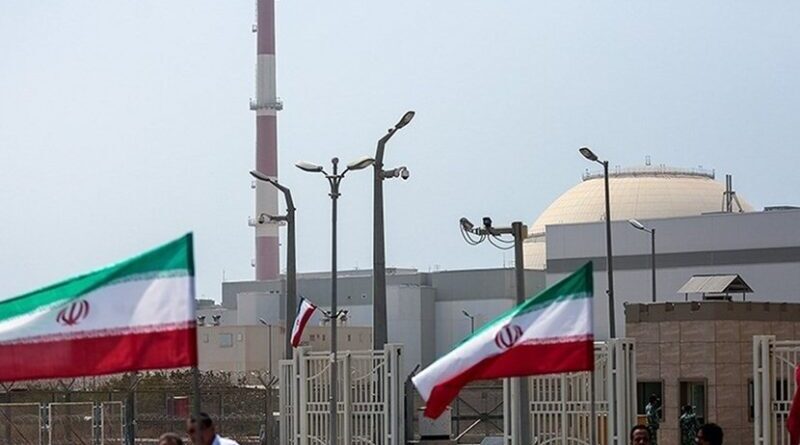Iran: JCPOA And IAEA Verifications – OpEd
The Joint Comprehensive Plan of Action (JCPOA) between Iran and the US has materialized, despite all the odds.
Since January 2016, the IAEA has been monitoring and verifying the nuclear related commitments made by Iran under the agreement. The IAEA believes that the JCPOA is a significant tool for verification and has issued a statement that the nuclear-related commitments made by Iran under the JCPOA are being implemented satisfactorily. Similarly, during the course of demonstrating Iran’s abidance of the JCPOA, all aspects of Iran’s nuclear program, the enriched uranium reserves, heavy water factory, and deviation from the agreement, have been reviewed and found to be in compliance with the agreement.
Alaeddin Boroujerdi, Chairman of Iran’s Parliament National Security and Foreign Policy Commission made public the recent proclamation by the DG of IAEA, “despite the US comments against Iran and repetitive violations of the nuclear agreement by Americans which seriously damaged US international reputation as a signatory state of the agreement, the Director General of the International Atomic Energy Agency (IAEA) Yukiya Amano approved Iran’s compliance with the agreement for the tenth time.”
His remarks came after the IAEA once again confirmed that Iran is fulfilling its commitments under the 2015 multilateral nuclear agreement. The UN nuclear watchdog said that it continued to verify and monitor the implementation by Iran of its nuclear related commitments under the 2015 deal between Iran and six world powers.
The new quarterly report analyzing Iran’s commitments under the nuclear agreement wa released recently. This testimony is to be examined during the upcoming meeting of IAEA Board of Governors from March 5-9, 2018. On January 12, the IAEA report came around the same time when the US President Donald Trump gave a four-month notice to Congress and the Europeans to overhaul the nuclear agreement or he would unilaterally withdraw the US from it. The next deadline from Trump on this matter is May 12, 2018. Earlier the deadline was December 12, 2017 under the US law, which he issued to Congress for taking swift action. Trump has declared that the agreement does not serve US national security interests and he already has propelled it to Congress so the lawmakers could “fix” sections that he considers not advantageous to the United States.
Under the nuclear agreement that went into force in January 2016, endorsed by the United National Security Council, Iran is obliged to put limits on its nuclear activities in exchange for termination of economic and financial sanctions. In this regard the recent report reads that Iran’s enriched uranium reserves stood at 109.5 kilograms until February 12. It said Iran did not exceed its 300 kilogram cap on enriched uranium during its reporting period. Likewise, it identifies that Iran has continued to inform the IAEA of reserves of heavy water and allowed it to monitor the reserves on regular basis.
Contrarily, despite the IAEA’s confidence and optimism with reference to the deal, there are analysts who have reservations. For instance, Mark Dubowitz, Head of Foundation for Defence of Democracies and a strong critic of the agreement, said the basic flaw is that the accord does not guarantee that Iran will not eventually be capable of developing nuclear weapons. “The problem with the nuclear deal is not whether Iran is complying or cheating.” It is the dangerous reality that the very structure of the deal gives Iran patient pathways to nuclear weapons and (intercontinental ballistic missiles) simply by following the deal and waiting patiently for key restrictions to sunset.”
On the other hand, geo-strategic security architecture of the Middle Eastern region is in a transitional phase. Iran considers it a legitimate right to go nuclear, claiming Israel’s nuke as a major threat to its security. This obstructs the idea of nuclear weapons free zone in the Middle East.
Hitherto, Iran continues to be in the center of the storm for its proliferation related activities. If Iran legitimately feels it is getting nothing positive out of the NPT and in addition, the US is actually misusing the NPT against it, this may increase calls among Iranian polity for NPT withdrawal.
It must be noted here that according to Article X, each party has the right to withdraw from the Treaty. Although it is unlikely that Iran would actually leave the NPT, especially after JCPOA, yet, if it does, it may not go alone, taking many sympathetic nations with it.
Previously, the 120 nations of the Non-Aligned Movement — the real “world community” — actually agreed with Iran in its dispute with the IAEA and the US. Therefore, the JCPOA could be taken and is proving to be a good initiative to accommodate a country like Iran into the mainstream non-proliferation regime. Rationally, a similar kind of arrangement could also be made with the North Korea to contain its disturbing nuclear ambitions.

